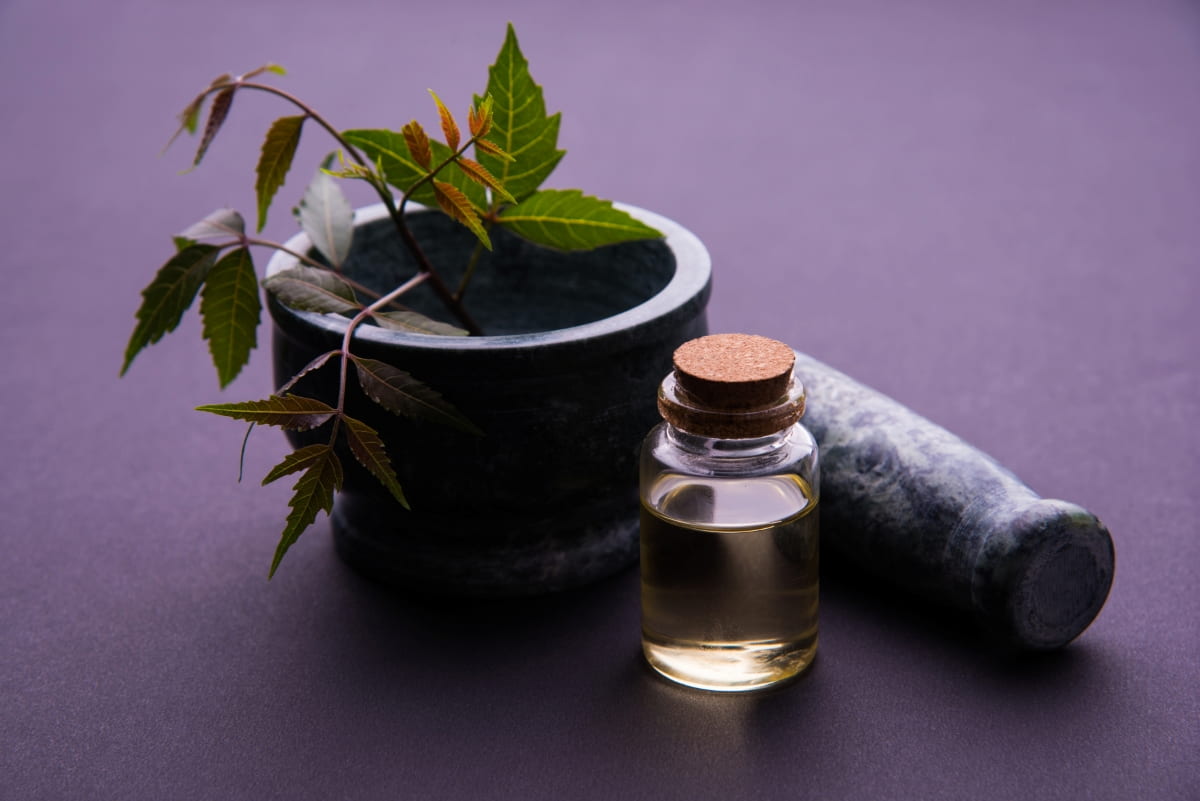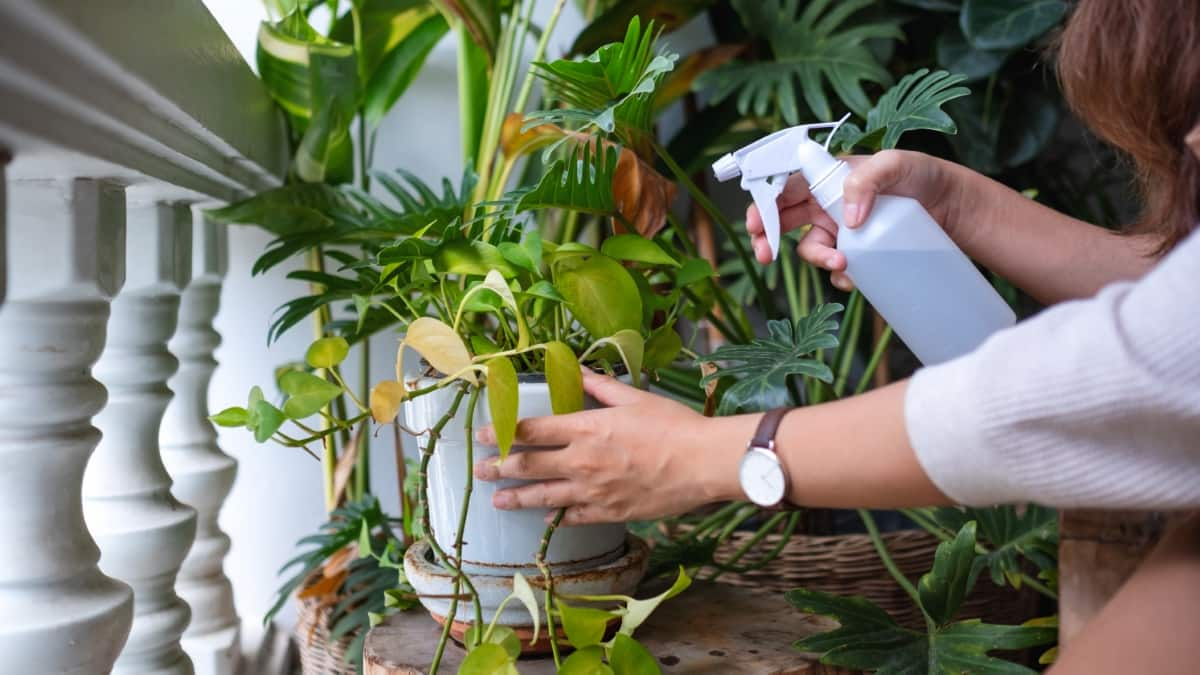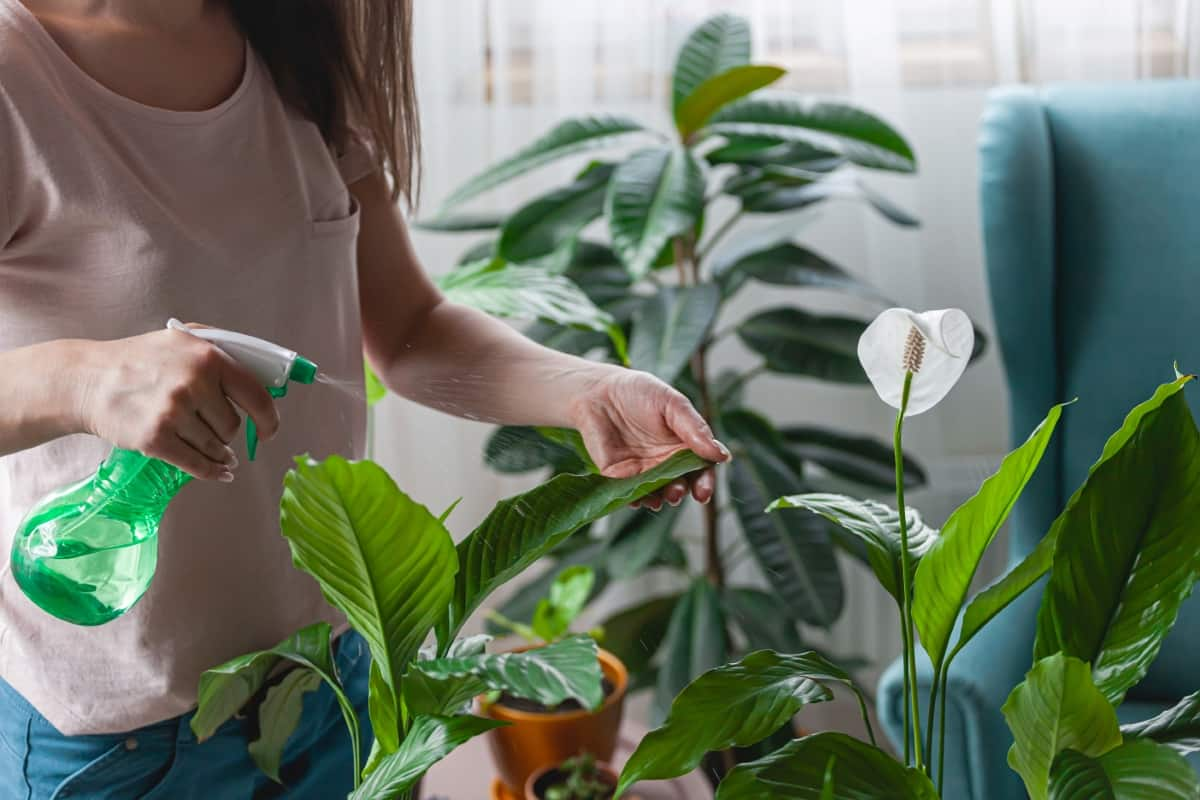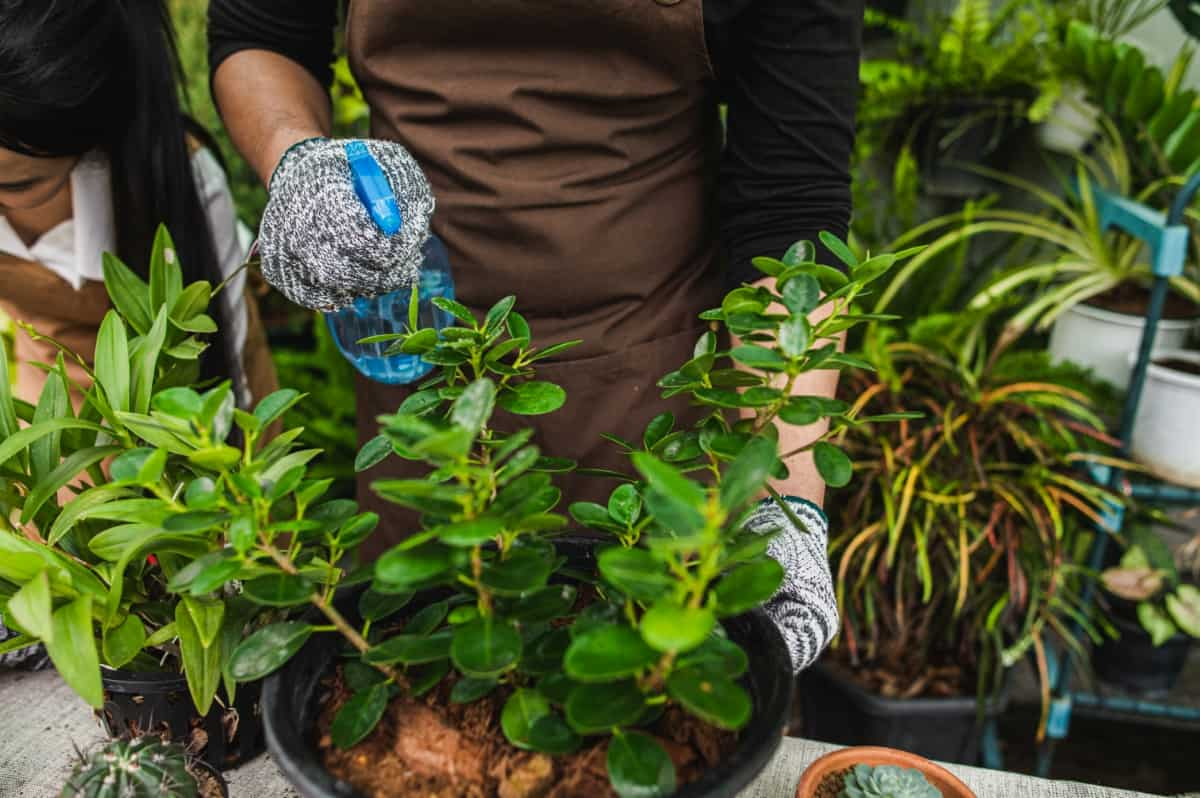Houseplants are a wonderful addition to any home, bringing beauty and a touch of nature indoors. However, houseplants can also fall victim to pests and diseases like outdoor plants. While many chemical treatments are available in the market, some people prefer to use herbal remedies for their houseplant problems. This article will explore common houseplant pests and diseases, and some herbal remedies for houseplants pests and diseases to combat them effectively.
Herbal Remedies for Houseplant Pests and Diseases
Neem Oil
Neem oil is derived from the neem tree’s seeds and has powerful insecticidal properties. It is particularly effective against common houseplant pests like aphids, mealybugs, and spider mites. Dilute neem oil with water as per the instructions on the product and apply it to the affected areas of the plant. Neem oil kills pests and disrupts their life cycle, preventing future infestations.

Garlic Spray
Garlic is known for its strong odor, which repels many pests. To make a garlic spray, crush a few garlic cloves and mix them with water. Let the mixture settle down overnight, then strain and transfer it into a spray bottle. Spray this solution on your houseplants to deter pests like aphids, whiteflies, and thrips. Remember to reapply the spray regularly, especially after watering the plants.
Cinnamon Powder
Cinnamon has antifungal properties and can be used to combat fungal infections in houseplants. Sprinkle a thin layer of cinnamon powder on the soil surface to prevent fungus growth and discourage the spread of diseases. Additionally, you can mix cinnamon powder with water and use it as a foliar spray to treat existing fungal infections on the leaves.
Red Chilli Powder
Prepare a solution using two tablespoons of red chilli powder and 6-7 drops of liquid detergent. Pour four liters of water over them. Allow this solution to sit on your skin overnight. Then, pour this diluted solution into a spray bottle and squirt it on the plant’s affected areas. You’ll notice that the bugs are gone in a day or two. Customers using this spray claim that the pests are gone after just one application.
Rosemary oil
Rosemary is a fragrant herb and an excellent herbal remedy for deterring pests like flies and mosquitoes. To make a rosemary infusion, boil a handful of fresh leaves in water for 20 to 30 minutes. Allow the solution to cool, then strain it. Pour the rosemary infusion into a spray bottle and apply it to the houseplants, focusing on where pests are most commonly found. Reapply the infusion every few days or as needed.
In case you missed it: Homemade Garlic and Pepper Spray for Pests and Disease Control: Recipe for Organic Benefits of Plants

Thyme
Thyme is a powerful natural insecticide that can control pests like aphids, whiteflies, and spider mites. Make a thyme-infused spray by boiling thyme leaves in water and using the strained liquid to spray on the affected plants. Repeat this process every few days until the pests are eradicated.
Lavender
Lavender has strong insect-repellent properties and can be used to control pests like moths, fleas, and spider mites. Place potted lavender plants near your houseplants or make a lavender-infused spray by boiling lavender flowers in water and using the strained liquid to spray on the plants.
Chamomile Tea
Chamomile tea is not just soothing for humans but also beneficial for houseplants. It contains compounds that act as natural fungicides, making it effective against diseases caused by fungi. Brew a strong chamomile tea and allow it to cool. Then, use it to water your plants or spray it on the affected areas to control fungal infections.
Eucalyptus Oil
Eucalyptus oil has insect-repellent properties and can help keep pests at bay. A few drops of eucalyptus oil should mix in water and spray on your houseplants to deter insects like aphids, whiteflies, and thrips. Be cautious not to use high concentrations of eucalyptus oil, as it may harm the plants.
Mint Leaves
Mint leaves have a strong scent that repels pests. To keep pests away, crush a handful of fresh mint leaves and scatter them around your houseplants. Alternatively, infuse mint leaves in water overnight and use the resulting solution as a foliar spray. This will not only repel pests but also refresh the leaves.
In case you missed it: Homemade Sage Spray for Pests and Disease Control: Recipe for Organic Benefits of Plants

Aloe Vera
Aloe vera has natural antifungal properties that can help combat diseases like root rot and leaf spot. Directly apply the gel from an aloe vera leaf to the affected parts of the plant. The gel acts as a protective barrier and promotes healing.
Chrysanthemum
Chrysanthemums contain a natural insecticide called pyrethrum, effective against various pests like ants, aphids, and thrips. You can make a chrysanthemum tea by boiling dried chrysanthemum flowers, then strain and let the liquid cool. Spray this solution on your plants to control pests.
Marigold
Besides being a beautiful flower, marigolds are also natural pest repellents. The strong scent of marigolds deters insects like aphids, whiteflies, and nematodes. Planting marigolds near your houseplants or using marigold extracts can help keep these pests away.
Lemon Juice
Lemon juice is a versatile ingredient with many uses, and it can also be beneficial for houseplants. The acidity of lemon juice helps control pests like spider mites and aphids. You can spray some lemon juice with water on the affected plants to remove the pests. However, be cautious not to overdo it, as excessive acidity can harm the plant.
Basil
The herb basil is known for its culinary uses as well as its insect-repellent properties. Its strong aroma repels flies, mosquitoes, and other pests. Planting basil near your houseplants can create a natural barrier against these insects. Additionally, you can make a basil-infused spray by steeping basil leaves in water and using it as a repellent.
Dill
Dill is another herb that can help combat pests in houseplants. The scent of dill repels aphids, spider mites, and caterpillars. Planting dill near your houseplants can deter these pests from settling in. You can also make a dill spray by boiling dill leaves in water and using it as a natural insecticide.
In case you missed it: Homemade Rosemary Spray for Pests and Disease Control: Recipe for Natural and Organic Benefits of Plants

Conclusion
Herbal remedies provide an effective and natural solution for treating houseplant pests and diseases. You can protect your plants without using harmful chemicals by using these remedies. To achieve the best results, apply the herbal treatments consistently and follow the instructions carefully. With proper care and attention, houseplants can thrive and remain healthy for years.
- Ultimate Guide to Ossabaw Island Hog: Breeding, Raising, Diet, and Care
- Ultimate Guide to Juliana Pig: Raising Facts, Size, Diet, Care, and Lifespan
- Raising Lleyn Sheep: Disadvantages, Price, Uses, Characteristics, and Care
- Ultimate Guide to Meishan Pig: Breed Facts, Breeding, Raising, and Care
- Ultimate Guide to Teacup Pigs: Raising, Diet, Lifespan, Cost, and Care
- Guide to Raising Poll Dorset Sheep: Facts, Profile, Characteristics, Uses, and Care
- Ultimate Guide to Bighorn Sheep: Characteristics, Diet, Lifespan, Breeding, and Lifecycle
- Ultimate Guide to Raising Katahdin Sheep: Farming Facts, Breed Profile, Uses, and Care
- Ultimate Guide to Raising Oreo Cows: Belted Galloways Farming Facts, Profile, Uses, and Care